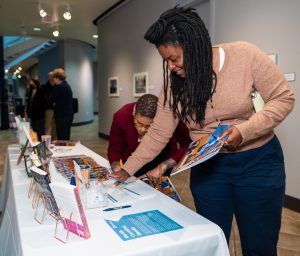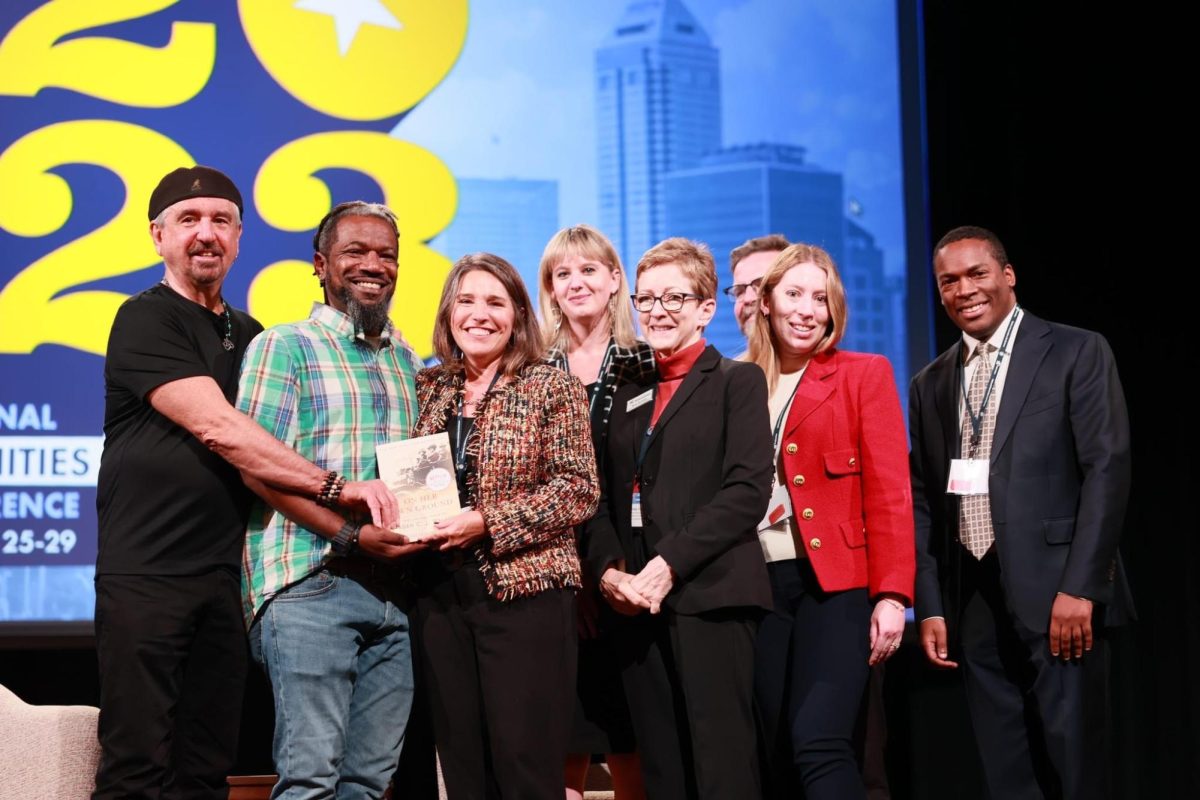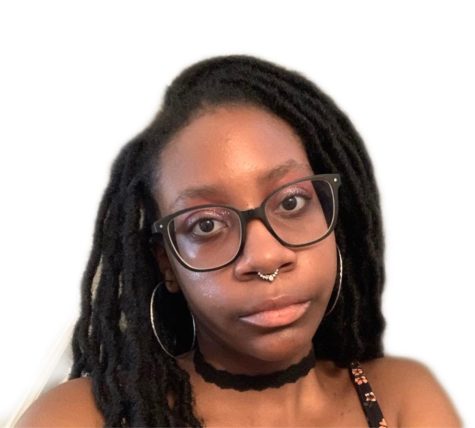Melissa Giblin said the humanities act as a pathway for empathy and connection. Giblin, director of the North Carolina Center for Books, saw a community need for a physical space to nurture connection while engaging in important topics informed by the state’s cultural and historical context. This was the basis for North Carolina Reads.
From February to June, NC Reads hosts a monthly virtual book club based on a series of five selected books featuring diverse voices from North Carolina. Facilitators from NC Reads invite the book’s author and a topic expert related to the novel’s themes in an hour-long discussion followed by a Q&A.
Last year, App State joined NC Reads in collaboration with the Office of Diversity and University Libraries to host their own discussion panels and watch parties for community members.
North Carolina Humanities, the host organization for NC Reads, launched the program in 2022 with funding from the National Endowment for the Humanities to celebrate U.S. diversity and the organization’s 50th anniversary.
According to its website, NC Humanities said the heart of the book club is the “desire to connect communities through shared reading experiences.”
Attendees ranged from native North Carolinians to people from 13 different states. Each discussion is recorded and uploaded to the NC Humanities YouTube channel for those who are unable to meet during the scheduled time.
In preparation for the program, NC Humanities staff discussed the how. How could a book club be accessed by communities across North Carolina and beyond? By connecting with state librarians on how to expand reading resources, NC Humanities curates a selection of books focused on racial, social and gender inequality through a North Carolinian lens.
This year’s selection includes:
- February’s nonfiction narrative of false imprisonment and racial discrimination in “Beyond Innocence: The Life Sentence of Darryl Hunt” by Phoebe Zerwick.
- March’s historical fiction novel detailing camaraderie in a Charlotte shell plant during World War II in “Poster Girls” by Meredith Ritchie.
- April’s nonfiction collection of stories from a daughter of refugees, U.S. immigrant, English professor, and activist settling in North Carolina in “American Refuge: True Stories of the Refugee Experience” by Diya Abdo.
- May’s fiction novel about a stolen musical heirloom: “The Violin Conspiracy” by Brendan Slocumb.
- June’s memoir focuses on an intern at a minor league baseball team: “Welcome to the Circus of Baseball” by Ryan McGee.
“We really want to leverage North Carolina Reads to share our love of stories and create those new shared reading experiences by having people come together,” Giblin said.
Sixty-two groups consisting of universities, public libraries and museums plan on attending this year. NC Humanities has packed around 250 book boxes and close to 4,000 books for this upcoming program.

Book boxes can be requested by individuals or on behalf of a community group free of charge. Inside each book box is a copy of the requested books, NC Reads merchandise and a curated discussion guide.
Feedback is integral to NC Reads’ operation as it helps gauge public interest and the success of the program. Giblin said last year’s surveyed participants said NC Reads exposed them to new ideas and perspectives.
“By continuing to select diverse texts and highlight new voices, the program really aimed to increase the public’s understanding, respect and empathy for each other and their stories,” Giblin said.
Giblin said NC Reads helped a museum achieve its organizational goals of connecting with stakeholders and, eventually, go on to build its own program centered around an in-person book club.
In October 2023, NC Humanities received a Schwartz Prize from the Federation of State Humanities Councils for an “outstanding public humanities program.”
“It’s doing a wonderful service to have that connectivity across the state where folks feel like they’re participating in something at the local level,” Giblin said. “But, they also know that folks around the state are participating in their communities in the exact same way.”
Chief Diversity Officer Jamie Parson facilitated App State’s involvement with the NC Reads program.
“At App State, University Libraries and the Office of Diversity partner to host an in-person social during one of the webinars so participants can meet each other, and communities of engagement may form from there, but that’s not something we orchestrate,” Parson said. “We have invited some of our campus groups to participate this year and to consider hosting ‘watch parties’ with their groups.”
Parson said the university received “several requests” for a campus book club and the presence of the statewide book club fulfilled that need.
“University Libraries and the Office of Diversity have a great partnership,” Parson said.“While this is one of our main collaborations, we continually work together to support diversity of thought, belief and community at App State.”
According to the university Engage page, Belk Library and Information Commons’ service desk will have 14 available copies of each book for attendees to keep at no cost. There are limited copies of physical books, e-books and audiobooks.
Melanie Moore Richeson, development and communications manager at NC Humanities, said the organization and App State are “working together” to bring the Smithsonian exhibition “Voices and Votes: Democracy in America” to campus from October to December


